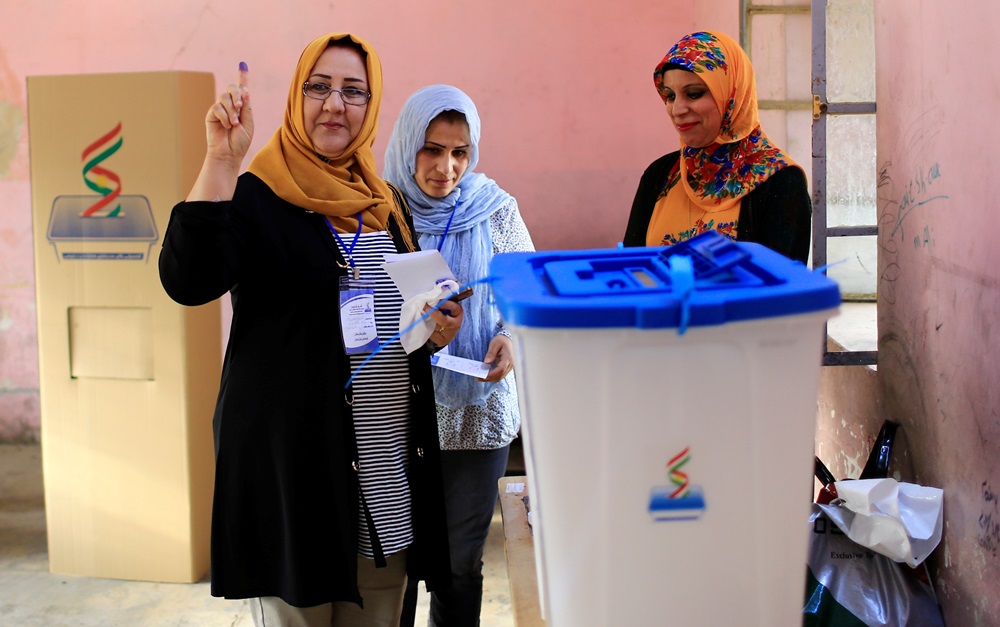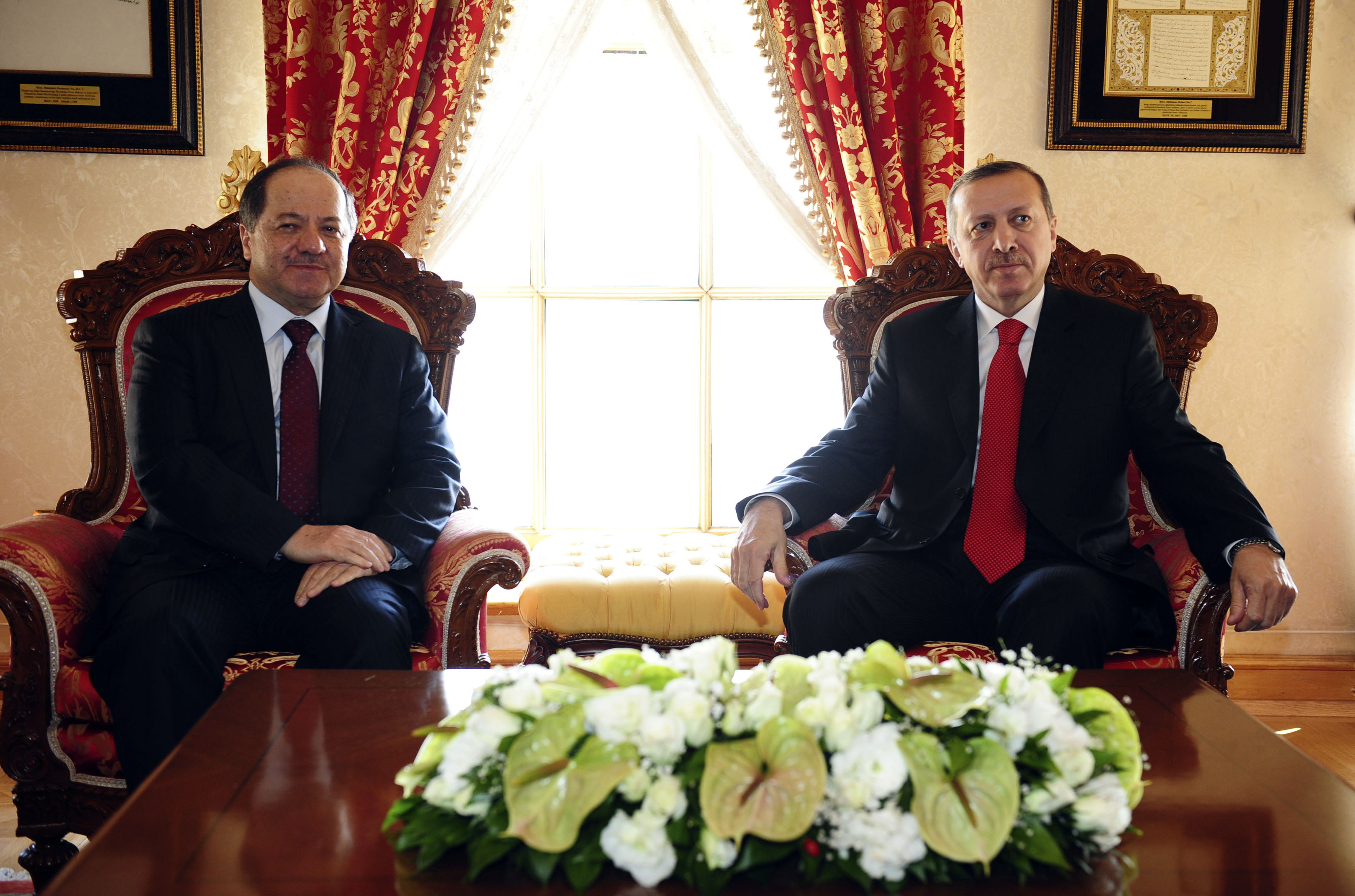Israel and the Kurdish Question
Origins and Current Relations
Historically, the Israeli-Kurdish alliance was part of the Peripheral Doctrine. This Israeli foreign policy strategy, launched in the 1950s, was based on cooperation with non-Arab countries and entities in the broader Middle East against Arab states that were hostile towards Israel, such as Iraq. In the 1960s, Israeli intelligence services established contact with the Kurdish resistance movement in Iraq headed by Mustafa Barzani, the father of Masoud Barzani, the current president of Iraqi Kurdistan. Israel provided military training and equipment to the Iraqi Kurds. Their cooperation was suspended in the mid-1970s under pressure from the U.S. and Iran. The establishment of the KRG after the Gulf War in 1991 and the fall of the Saddam Hussein regime following the U.S. invasion in 2003 allowed for the reactivation of mutual relations.
Security is the main area of cooperation between Israel and the Iraqi Kurds. Collaboration with Iraqi Kurdistan, which borders Iran, facilitates Israeli intelligence activities against the latter. Israeli instructors reportedly participated in training the Kurdish army (Peshmerga) after 2003. Israel also provided humanitarian aid to the KRG after the offensive by the so-called Islamic State (IS/ISIS/ISIL) in 2014. In 2015, Israel purchased crude oil worth about $1 billion from Iraqi Kurdistan, amounting to a third of Kurdish oil exports and three-fourths of the annual Israeli oil demand. The Israeli side emphasised that the transaction—which was criticised by the U.S. and Iraq—was a form of support for the Kurds in their fight against IS. The friendly attitude of the ruling Kurdistan Democratic Party (KDP) allows Israeli companies from, for example, the communications or security sectors to operate in KRG territory. Cultural and educational cooperation is also being developed, including the commemoration of Kurdish Jewish heritage. In 2015, the KRG authorities established within the Ministry of Social and Religious Affairs a representative office of the Jewish minority—estimated at several hundred families. In the context of Israeli-Kurdish relations, one should mention the emigration of Iraqi Jews, forced by the Iraqi authorities in the early 1950s, most of whom settled in Israel. Currently, the number of Israelis with Kurdish background is estimated at 150,000 to 200,000.
Israel and the KRG Independence Referendum
Kurdish aspirations for independence have been supported in recent years by many leading Israeli politicians: Prime Minister Benjamin Netanyahu, Defence Minister Avigdor Lieberman, Justice Minister Ayelet Shaked, and the late President Shimon Peres. Netanyahu last declared support for the KRG independence referendum this September.[1] Israel hopes that an independent and democratic Kurdistan will change the balance of power in the Middle East in a way that is beneficial to Israel. The emergence of a friendly state in Iraqi Kurdistan would counterbalance Iran’s growing power in the region and impede the creation of the so-called Shiite corridor between Iran, Iraq, and Syria. Establishing ties to independent Kurdistan would also mean a further easing of Israel’s regional isolation and allow for open economic and military cooperation. At the same time, Israel is accounting for the possibility of regional destabilisation in the aftermath of Iraq Kurdistan’s declaration of independence, which in turn may affect Israeli security.
For the ruling KDP, the partnership with Israel, although beneficial, is also a political burden. KRG territory remains part of Iraq. The central government insists fierily that it will not allow the creation of a “second Israel” on its territory and criticises the Israeli-Kurdish cooperation, for example, their oil trading. The KRG’s close ties with Israel are also the subject of an intra-Kurdish political debate and criticism inter alia from the Iran-backed main opposition party, Patriotic Union of Kurdistan (PUK). The Kurdish side also fears that open cooperation with Israel could deprive Kurdistan of support from Sunni states and may result in a reduction of their investment in the KRG. At the same time, KDP authorities count on lobbying and Israeli support to establish Kurdish independence on the international scene, especially with regard to the United States.
Regional Aspects
Israel’s relations with Turkey are an important factor in its relations with the Kurds. In the past, Israel’s strategic alliance with Turkey meant it refrained from supporting Kurdish independence, including the KRG’s aspirations after 2003. Israel had no active policy towards the Turkish Kurds—the main obstacles were the involvement of the Kurdistan Workers Party (PKK) with the Palestine Liberation Organisation (PLO) and Israeli-Turkish close military cooperation. In 1999, Israel (along with other countries) provided support to Turkey in detaining PKK leader Abdullah Öcalan—in the aftermath, a Kurdish demonstration in Berlin led to an attack on the Israeli embassy that resulted in the death of three Kurdish demonstrators. Israel officially recognises the PKK as a terrorist organisation, which was confirmed by Netanyahu in September 2017. The breakdown of relations with Turkey after the 2010 Mavi Marmara incident allowed Israel to revise its policy and openly support the Kurdish aspirations for independence in Iraq. Israeli-Turkish relations were renewed in 2016 but remain cool. However, they are sufficient to allow Israel to make greater use of the cooperation between Turkey and Iraqi Kurdistan. The Israeli and Iraqi Kurdistan cooperation, e.g., in trade (including possible oil imports) in the absence of a common border remains dependent on Turkey.
Israeli-Kurdish relations are used by states in the region for political attacks on the Kurdish side. To discourage participation in the referendum in the weeks preceding it, Turkish media reported that after the announcement of independence, 200,000 Jews originally from Kurdistan would return. Turkey and Iran accuse Israel of supporting both the PKK and Kurdish separatists in Iran from the Kurdistan Free Life Party (PJAK). It was reported that in 2013, Turkey provided Iran information that led to the dismantlement of the Israeli intelligence network of Iranian Kurds. Relations with the Syrian Kurds remain limited due to the periodic cooperation between PYD forces and the Syrian authorities and their Shiite allies during the Syrian civil war.
Perspectives
Israel’s support for the Kurds, and especially for Iraqi Kurdistan’s independence, will continue despite the possible negative consequences for it in helping to change the regional status quo. The alliance with the Iraqi Kurds, thanks to their geopolitical anchorage, translates into greater opportunities for Israeli action in the region at relatively low political costs to Israel. On the other hand, the priority for the KRG is the stabilisation of relations with its immediate neighbours, especially in the context of Iran’s increasing strength since the general defeat of IS in Iraq and successes in Syria. Therefore, to improve the reception of their independence efforts among regional states, the KRG authorities may wish to limit the cooperation with Israel to avoid further political attacks. The emergence of an independent Kurdistan would probably also lead to the strengthening of Palestinian independence aspirations, both diplomatically and militarily.
Israeli support for the independence of the KRG remains divergent from the official position of the U.S., which foresees the further disintegration of Iraq. That tension could generate disputes in the future. This is particularly important given the geographical distance between the KRG territory and Israel. Without assistance from the U.S. or Turkey, Israel would not be able to effectively support the KRG in the event of a conflict with the central government in Baghdad or with Iran. With Israel concerned that Iran will gain increased influence in Kurdistan, it will certainly work towards greater U.S. support for the Kurds.
[1] P. Sasnal, “Context and Scenarios after the Referendum on Iraqi Kurdistan’s Independence,” PISM Bulletin, no. 87 (1027), 22 September 2017, www.pism.pl.




